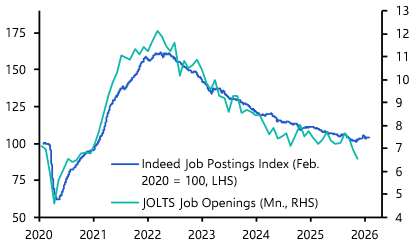Events move markets, but some events are more important than others. Forget the fact President Trump has refused to concede defeat in the US election, or that Europe and the US remain gripped by new waves of the virus, or that another key Brexit deadline has passed and a “no deal” exit is edging closer. Markets are focussed on the increasing likelihood of a vaccine breakthrough – and the MSCI Global Equity Index is now back to its pre-pandemic highs. After almost a year in which COVID-19 has ravaged the global economy, there is finally light at the end of the tunnel.
The big event last week, of course, was the news that Pfizer’s vaccine had achieved 90% efficacy in stage three trials. Those trials are not yet complete and there are several important tests to come, including around vaccine safety. After that will come the challenge of ramping up production and ensuring efficient distribution. Pre-orders of the Pfizer vaccine have been dominated by the US, Europe, Canada and Australia, underlining the risk that large parts of the emerging world get left behind.
With all that being said, developments over the past week have clearly been very encouraging. Several other vaccines are also approaching the end of stage three trials. And since most target the same protein in the virus, there is good reason to think that they will be as effective as Pfizer’s seems likely to be. If so, it’s possible to believe that life will start to become a bit more normal next year.
What would this mean for the economy? The good news on vaccines is tempered by the fact that they won’t come soon enough to prevent a difficult winter for many economies. New restrictions to stem the spread of the virus are likely to cause several European economies to contract in the fourth quarter. The UK, in particular, continues to struggle. Policy support will need to remain in place for the foreseeable future.
But the widespread rollout of vaccines would clearly improve the prospects for next year. As it happens, we had already assumed in our economic forecasts that by 2022 the virus would be suppressed and restrictions on movement and activity would be lifted. A swifter rollout of vaccines would bring forward the associated recovery in output. Much will depend on the procurement and distribution of vaccines but, if all goes well, it’s possible that major economies will return to pre-virus levels of output around six months earlier than we had previously thought.
Even so, it remains the case that most economies, particularly those in Europe, will continue to operate below full employment in 2021-22. Meanwhile, the pandemic will leave a large overhang of debt in its wake. And while medium-term inflation concerns are building, price pressures are likely to remain extremely subdued in the short term – indeed, it’s more likely that policymakers will try to push inflation higher than lower over the next two years. All of this points to the need for monetary policy to remain extremely accommodative irrespective of progress on vaccines, a point underlined in a speech last week by Christine Lagarde. This is in turn should keep bond yields anchored, and ensure equities continue to outperform.
In case you missed it:
- Our Senior Economic Adviser argues we may be entering a new era of financial repression - with significant economic and market implications.
- Our Senior EM Economist, Jason Tuvey, assesses the prospects and potential implications of a shift towards more orthodox policy making in Turkey.
- The virus hit China hard the in the first quarter, but it has experienced the fastest recovery of the major economies. In contrast, the UK economy is headed back into contraction as England slogs through a second national lockdown and yet another Brexit deadline looms. We're hosting two webinars next week to discuss whether China's growth is sustainable, and what 2021 holds for the UK's struggling economy. Register directly at the links or via our events page.



